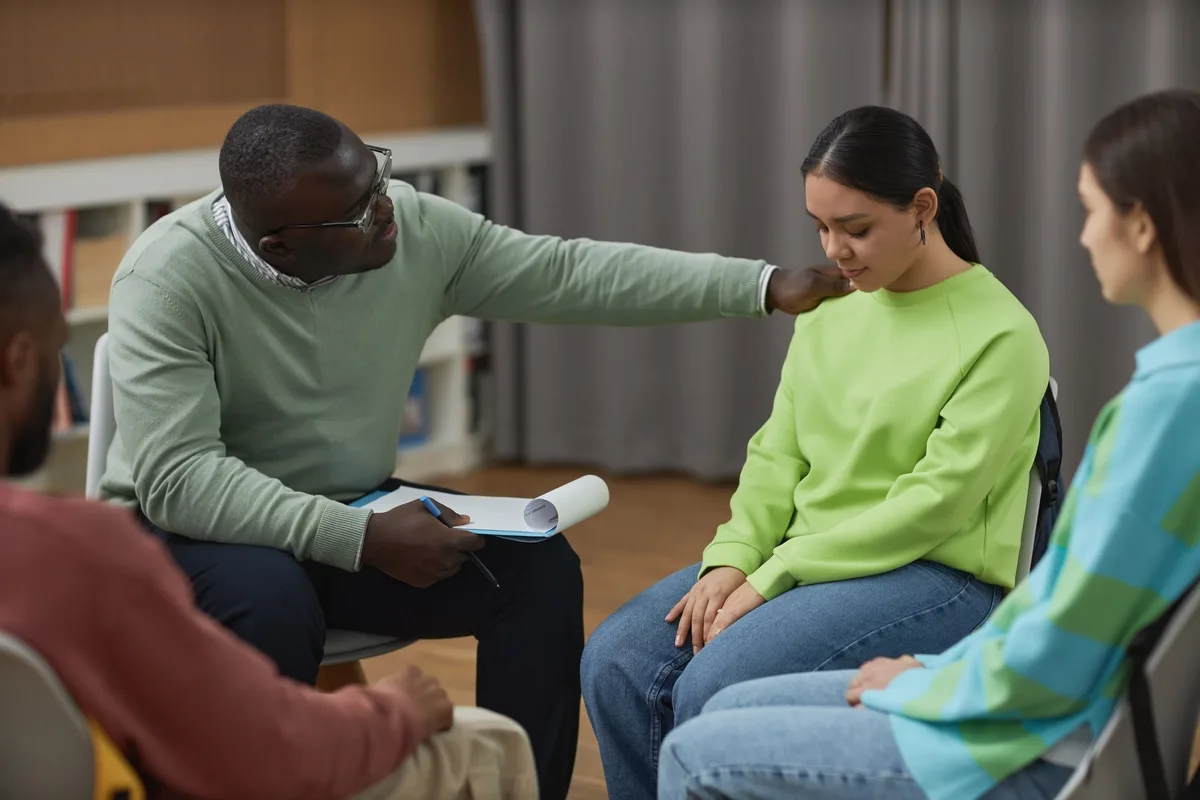24/7 Helpline:
(866) 899-111424/7 Helpline:
(866) 899-1114
Learn more about Opioid Rehab centers in Fairmont
Opioid Rehab in Other Cities
Other Categories in Fairmont

Other Insurance Options

BHS | Behavioral Health Systems

Sutter

Aetna

Self-pay options

MHNNet Behavioral Health

Regence

Ceridian

UMR

Sliding scale payment assistance

AllWell

WellPoint

Humana

BlueShield

State Farm

Meritain

Choice Care Network

Providence

Health Choice

Amerigroup

Oxford

Robeson Healthcare Corporation
Robeson Healthcare Corporation - Walnut Street is a non-profit rehab located in Fairmont, North Caro...

Youth Academy
Located in Fairmont, West Virginia, Youth Academy is a drug and alcohol treatment center that suppor...

Valley Healthcare System – ACT Unit
Valley Healthcare System–ACT Unit, in Fairmont, West Virginia, is a comprehensive drug and alcohol r...

Family Services – Alcohol and Drug Counseling
Family Services – Alcohol and Drug Counseling is a private rehab located in Fairmont, West Virginia....





House of Hope – Fairmont Program
House of Hope - Fairmont Program offers a residential program for those men and women who are strugg...

Serenity Behavioral Health
Serenity Behavioral Health is a private rehab located in Fairmont, North Carolina. Serenity Behavior...

New Beginnings Program
New Beginnings Program offers inpatient treatment for women with alcohol and/or substance addiction....

United Summit Center
United Summit Center is a non-profit rehab located in Fairmont, West Virginia. United Summit Center ...


